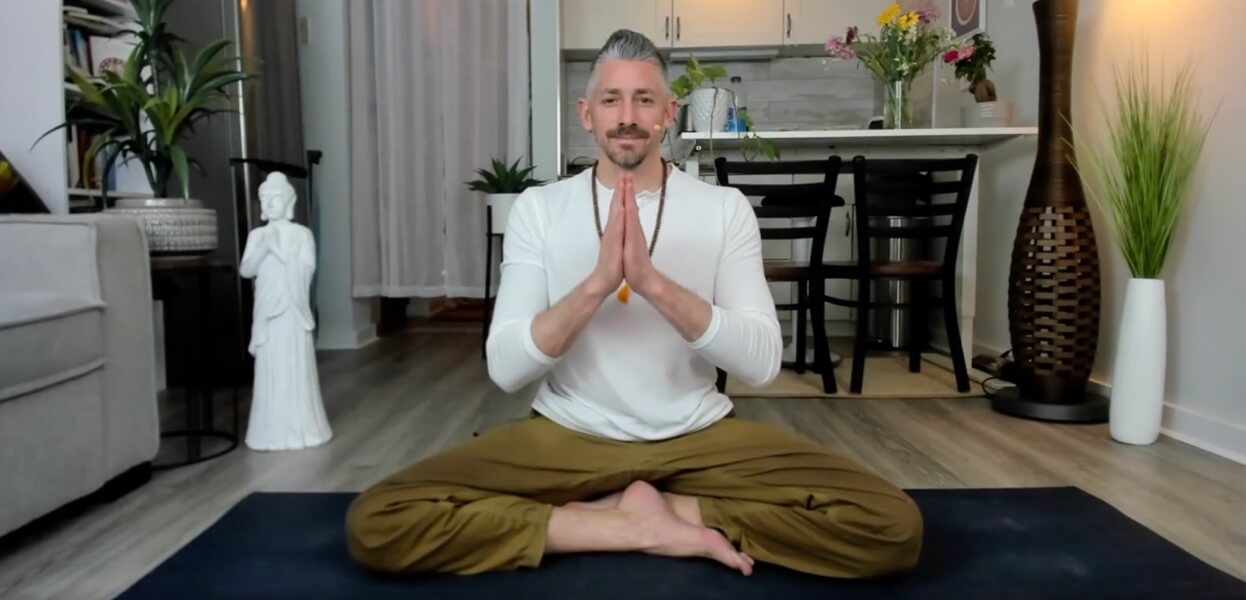🌿 Awaken & Connect: 2025 Yoga Retreat | Reserve Your Spot
A yogic lifestyle isn’t about perfection—it’s about balance. It’s about making intentional choices that support your physical, mental, and spiritual well-being. Yoga, in its truest sense, extends far beyond the mat. It’s a way of living that aligns us with our highest potential.
There are five key pillars that form the foundation of a yogic lifestyle:
- Nourishing diet
- Balanced movement
- Conscious engagement with the world
- Restorative sleep
- Daily practice (sadhana)
Living this way doesn’t happen overnight—it’s a process of steady, mindful change. The teachings of yoga remind us to trust this process. Even the smallest efforts accumulate over time, leading to profound transformation.
“On this path, effort never goes to waste, and there is no failure. Even a little effort toward spiritual awareness will protect you from the greatest fear.” — Bhagavad Gita
Let’s explore these five guiding principles and how to integrate them into daily life.
1. Nourishing Diet
What we eat affects not only our body but also our mind and energy levels. A yogic diet emphasizes eating real, whole foods—nourishing the body while keeping the mind clear and steady.
Simple guidelines for a balanced diet:
- Eat fresh, minimally processed foods like fruits, vegetables, grains, nuts, seeds, and legumes.
- Follow the rhythm of your body—eat when you’re truly hungry and stop before you’re full.
- Apply the 80/20 rule: prioritize nutrient-rich meals most of the time, and allow flexibility within reason.
- Consider reducing or eliminating meat. Experiment with vegetarian meals and observe how your body and mind feel.
2. Balanced Movement
Movement should energize and strengthen the body while calming the nervous system. Yogic movement (asana) is not just exercise—it’s a practice designed to enhance physical, mental, and energetic well-being.
Key benefits of asana practice:
- Increases strength, flexibility, and stability
- Clears energetic blockages within the body
- Creates a strong foundation for meditation
A daily yoga practice—no matter how simple—can support your overall well-being. If you’re looking for guidance, I’d be honored to practice with you.
3. Conscious Engagement with the World
Living yoga isn’t about retreating from life—it’s about engaging with it consciously and compassionately. A balanced life includes both inner practice and outward action.
Ways to cultivate mindful engagement:
- Practice kindness, both to yourself and others.
- Give more than you take—contribute to your community in meaningful ways.
- Stay rooted in your values while navigating daily life.
- Enjoy the physical world without becoming overly attached to it.
At its heart, this principle is about remembering that our lives are connected to something greater than ourselves. By living with intention, we align with that deeper reality.
4. Restorative Sleep
Sleep is essential for repair and renewal. Yet in a world of endless distractions, it’s easy to neglect.
Simple ways to improve sleep quality:
- Stop eating at least 3 hours before bed to support digestion.
- Reduce screen time before sleep—opt for reading or quiet reflection instead.
- Practice evening relaxation techniques, such as breathwork or gentle stretching.
- Establish a consistent sleep schedule, aiming to sleep and wake at the same times each day.
When we honor sleep as a sacred part of our daily rhythm, we wake up feeling more balanced and energized.
5. Daily Practice (Sadhana)
A dedicated spiritual practice (sadhana) is the heart of a yogic lifestyle. This is where transformation happens.
How to develop a meaningful daily practice:
- Start small. Even 15 minutes a day can create profound shifts.
- Prioritize breath. Breathwork (pranayama) is the foundation of all yogic practices.
- Focus on quality over quantity. A simple, focused practice is more effective than a scattered routine.
- Find a teacher. Learn from those rooted in an authentic yogic tradition. Let’s practice together 🙂
- Surround yourself with supportive people. Seek out satsang (spiritual community) to uplift and inspire your practice.
- Practice in the morning. The early hours are ideal for sadhana—before distractions pull you in other directions.
When practiced consistently, sadhana becomes the anchor that keeps us steady through life’s ups and downs.
Final Thoughts
A yogic lifestyle isn’t about rigid rules—it’s about cultivating awareness, balance, and connection. You don’t have to implement everything at once. Start where you are, take small steps, and trust the process.
With time, these principles will naturally become part of your daily rhythm, guiding you toward greater clarity, vitality, and peace.
What’s one small shift you can make today?

Reclaim Your Inner Peace.
Discover the transformative power of meditation and yoga in your life.
Join me on Patreon for immediate access to a growing video library of meditation, yoga, relaxation, and well-being practices. Vibrant health awaits you.


